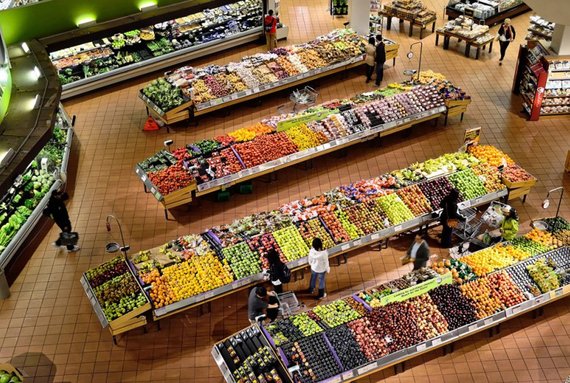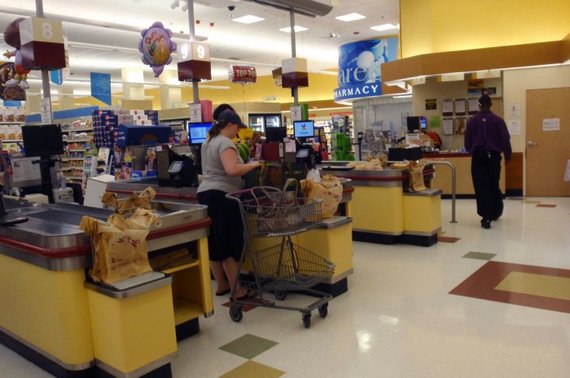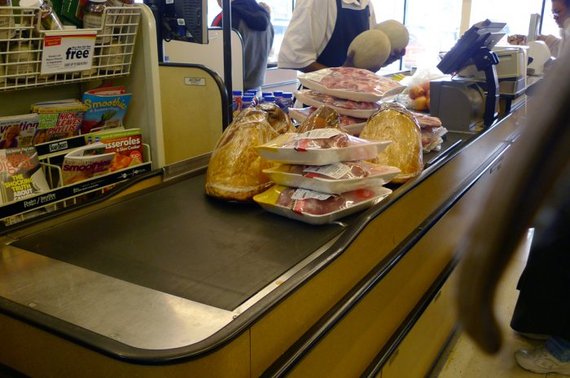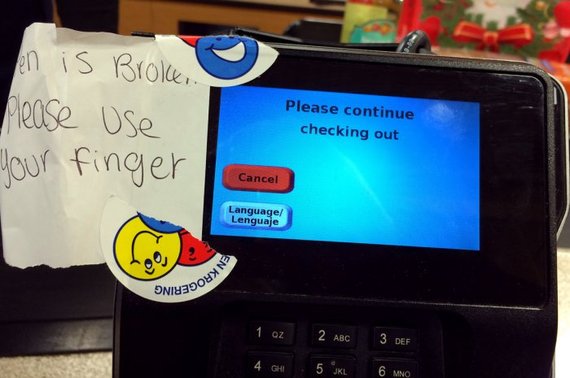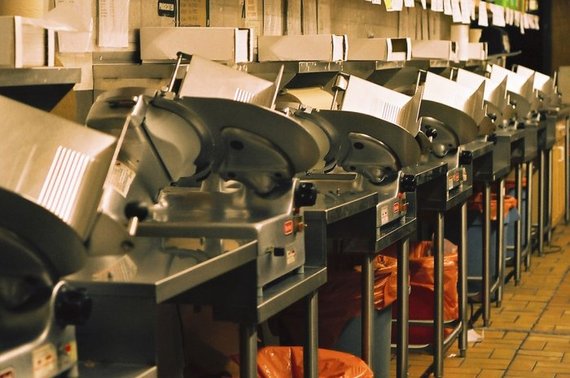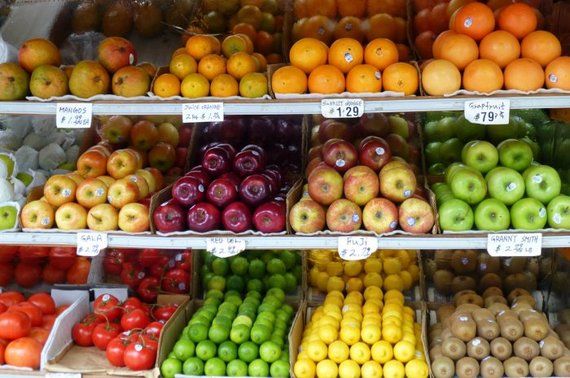Plan on going grocery shopping soon? Read this first.
Let's face it: Everything around us is pretty dirty. Even if we wash our hands regularly and make sure that our living and working spaces are clean, the world is still an insanely germy place. Unfortunately, the same can be said for where we buy (and eat) our food. These are the 10 dirtiest places in every supermarket.
As a rule of thumb, the most bacteria tends to lurk in the places that are touched by the most people. Bathroom sink faucets, light switches, condiment bottles and menus in restaurants, door knobs and handles, computer keyboards and mice, and ATM keypads have been shown to harbor an insane amount of germs. Flu viruses can survive on hard surfaces for as long as 18 hours.
On top of that, The Centers for Disease Control and Prevention estimates that 200,000 Americans contract food poisoning every day, largely by touching something that's contaminated then transferring the bacteria or pathogen to the eyes or mouth. At the supermarket, where everyone seems to be touching everything (seriously, how often have you picked up an apple there and then put it back down?), there's also food everywhere, including raw meat. Nowadays just about every supermarket has hand sanitizer by the entrance; we suggest you use it on your way in and on your way out.
It's easy to freak out about germs being everywhere. While it's certainly unpleasant to think about, unless you're very young, very old, or have a compromised immune system, you're most likely not going to become deathly ill from a trip to stock up on eggs and milk. We have antibodies and an immune system whose job it is to make sure that bacteria are killed before they can cause us harm. That said, you should still wash your hands before you dive into that newly-purchased bag of Cheetos.
Checkout Counter
Think of all the things that come into contact with the checkout counter: money, your hands, the bottom of your purse (which most likely recently touched a bathroom floor)... all of these things are infested with germs.
Conveyor Belt
The conveyor belt on the checkout line is rarely, if ever, cleaned, and can last for up to 30 years. On top of that, they're made from petroleum-based PVC, which is porous and nearly impossible to clean. A study by the International Association of Food Protection showed that yeast, mold, staph, and coliform live and grow on the belts, and a study by Michigan State University found bacteria on 100 percent of belts tested.
Credit Card Keypad
Just about everybody pays for their groceries with credit cards, and you can't use your credit card without using a keypad, or at least using that "pen" to sign your name on the screen. The more that human hands touch something the filthier it will be. We highly doubt that those keypads are being cleaned daily.
Deli Slicer
The deli slicer, and the cold cuts that it slices, are at serious risk of contamination. If the blade isn't regularly cleaned, it can transfer bacteria (including listeria) to everything it touches. A joint team of researchers from the USDA, FDA, and CDC sampled deli meats at the point of purchase, and three percent tested positive for listeria.
Fruit
There's a reason why we're told to wash fruit before eating it, and it's about more than removing pesticides. It's commonplace to handle fruit before buying it. Ready-to-eat fruits like apples and peaches can be touched by dozens of people by the time you get to it. Dents or bruising in fruit can provide a way in for pathogens, while pre-sliced fruit might have been cut with a dirty knife or by someone with dirty hands.
Dan Myers, The Daily Meal
